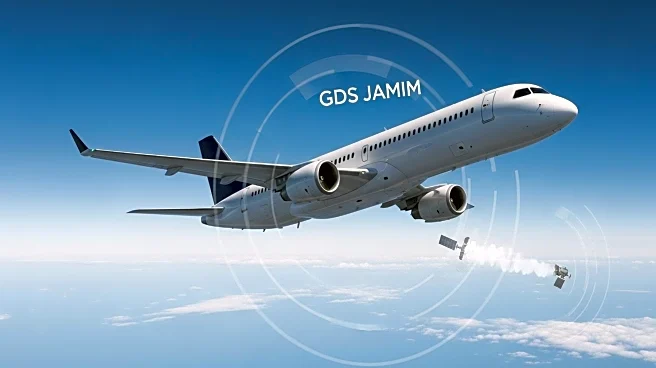What is the story about?
What's Happening?
A plane carrying European Commission President Ursula von der Leyen was reportedly targeted by GPS jamming while attempting to land in Bulgaria. Bulgarian authorities suspect Russian involvement, although the Kremlin has denied these allegations. The plane landed safely using paper maps. This incident occurred during von der Leyen's tour of EU member states bordering Russia and Belarus, aimed at rallying support for Ukraine. The European Commission has been a strong advocate for Ukraine amidst ongoing Russian aggression, and this event further emphasizes the need for increased defense measures.
Why It's Important?
The alleged GPS jamming incident highlights the persistent threat of electronic warfare tactics employed by Russia, particularly in regions close to its borders. This development underscores the vulnerabilities in aviation security and the potential risks to international travel. The European Commission's response, emphasizing a commitment to defense, reflects the broader geopolitical tensions between the EU and Russia. The incident may lead to increased defense spending and collaboration among EU member states, impacting regional security dynamics and diplomatic relations.
What's Next?
The European Commission is expected to investigate the incident further and may consider additional sanctions against Russian entities involved in GPS interference. The EU's focus on enhancing defense capabilities suggests potential policy shifts and increased military cooperation among member states. This incident may also prompt discussions on improving aviation security protocols to prevent similar occurrences. Stakeholders, including NATO allies and EU member states, will likely monitor the situation closely and consider coordinated responses to deter further Russian aggression.
Beyond the Headlines
The incident raises ethical and legal questions about the use of electronic warfare against civilian aircraft and the implications for international aviation security. It also highlights the need for global cooperation in addressing cybersecurity threats and protecting critical infrastructure. The EU's response may influence future strategies for handling similar incidents, setting a precedent for international aviation security standards and diplomatic approaches.















